This post is in partnership with Cochlear Americas, however all opinions are my own.
When Jonah was diagnosed with hearing loss at the age of 4, I was completely shocked. I was in complete disbelief and even thought that clinician had made a mistake. However, when they redid the test and the results were in fact accurate, I felt like the walls were caving in on me. To be honest, in that moment, I felt devastated. Devastated for Jonah that he had hearing loss, devastated that we didn’t know why, devastated that we didn’t know if it would get worse and devastated that I couldn’t do anything to change it. However, in that moment, the only choice I had was to move forward. I had to accept what I was being told and I had to do everything I could to ensure that he was hearing to the best of his ability. In that moment, your entire perspective changes. I looked at Jonah and thought, .
Hearing Loss Facts
According to the American Academy of Pediatrics, an estimated 3 in 1,000 infants are born in the US each year with moderate, severe or profound hearing loss. This results in delayed speech, language and learning. And according to the National Institute on Deafness and Other Communication Disorders, 90% of deaf children are born to hearing parents. When dealing with hearing loss, the sooner hearing impaired children receive access to sound, the sooner they are able to learn, listen and speak like children without hearing loss1,2. While many early intervention factors contribute to a child succeeding with a cochlear implant, research and over two decades of experiences demonstrate cochlear implants provide improved speech and language development, quality of life and educational outcomes for children with hearing loss.
It’s Time to Hear
That day when I found out about Jonah’s hearing loss, they told me to go home to take some time to process what I had just learned. When I looked at them and said no, they were shocked. I knew in that moment, taking time to process Jonah’s hearing loss wasn’t going to change anything. Instead, I took a few minutes to catch my breath and then began learning about my son’s options. Before we went home that day, he had been fitted for hearing aids and they had been ordered.
Although Jonah is not a candidate for cochlear implants, cochlear implants have become the most established treatment for children as young as 12 months with bilateral profound sensorineural hearing loss. Research has shown that children who get them implanted early in life have speech performance scores closest to the scores of normal hearing children1,2.
Community is Everything
Jonah and I had the pleasure of meeting up with a Cochlear volunteer and employee, Dorota, and her 10 year old son Lukas. We got the boys together to play while she shared her and her son’s story with me. Dorota is the first person that I have had the opportunity of sitting down with to talk in detail about hearing loss. While our stories are different, they are also similar and I learned so much from her. She shared her story with me, the beginning not so different from my own. Lukas passed his infant hearing test in one ear, but not the other. Just as Jonah had failed his hearing test, she took him for further testing after he was born. In the coming months, he had lots of ear infections and fluid in his ears. While Jonah went on to get tubes in his ears before being diagnosed with any hearing loss, Lukas got hearing aids in both ears, similar to the ones Jonah wears today. At that time, Lukas was diagnosed with moderate to severe sensorineural hearing loss. As time went on and Lukas’s hearing loss worsened, Dorota became educated about cochlear implants. While she knew the benefits of them, she needed some time to decide if it was the right decision for Lukas. She said to me when we were chatting how challenging it was to make a decision for Lukas when he was so young and she didn’t know what Lukas would want. She decided that she should speak to teenagers who had cochlear implants to gain insight on their perspective to help her make a decision. After speaking with them, all of which who said that it was the best decision for them, she knew that it was the right decision for her son. Once the decision was made, Lukas went in for surgery quite quickly, although the process of ensuring that he was a candidate had already taken place.
Cochlear Implants for Lukas
Lukas went in for surgery for the cochlear implants when he was 3 and a half. She explained to me how the cochlear implants work and showed us where the incision was made behind Lukas’s ear. It was almost impossible to see! After the cochlear implants go in, they are not turned on right away. Dorota was concerned about how she would communicate with her 3 and a half year old once the surgery was complete before they were turned on. It was during that time that she learned how good he was at reading lips. She was amazed! Children are truly amazing and they are capable of so much more than we give them credit for. While we were talking about Lukas’s ability to read lips, I shared with her how I have always been amazed by Jonah and his ability to decode what he is saying when others don’t understand him. Both boys elevated their other senses to make up for the one that they lacked.
Cochlear Implants are Life Changing
The moment your child is able to hear things that they were once not able to hear is truly an incredible one. We shared our experiences and I truly enjoyed being able to hear someone else’s story knowing how amazing that moment was for Jonah with his hearing aids. Lukas’s life with cochlear implants has been an amazing one. They have given him the ability to hear and have truly changed his life. His speech is unbelievably clear and he is thriving in all aspects of his life. Socially, the cochlear implants have only made life better, as well as academically. Dorota has never looked back and is grateful for the medical technology that we have available to us.
Technology for the Win…again!
Lukas and Dorota spent some time showing us how the technology works. The boys had so much fun playing a game of hide and seek where Lukas would hide his sound processor and Jonah would use the Nucleus Smart App* on Dorota’s phone to try and find it in the play structure. The boys had the best time! He also showed us how the Bluetooth® capabilities allow for the phone to pair directly into the sound proccesor for Lukas to hear the iPhone® and iPad®. Dorota also showed me the Aqua+** for the sound processor making it water proof for Lukas to swim with.
Learning about cochlear implants as well as Lukas’s story and how they have changed his life, was amazing. Even though Jonah is not a candidate for cochlear implants now, I learned more than I could have ever imagined. It was amazing to speak to another parent who has experience with hearing loss and it was remarkable to learn about how cochlear implants work. Knowledge is power. If there is one thing I’ve learned through my own experience, it’s that with knowledge, that feeling of devastation goes away. From the day Jonah was diagnosed with hearing loss to now, there is no longer that feeling of devastation. What I feel now is grateful. Grateful that Jonah was able to get what he needed to hear, grateful to know that should his hearing loss get worse that there are other options and grateful to know that there are wonderful people like Dorota out there who have dedicated their time to educating others and sharing her story to let others know that everything will be ok. Thank you Dorota!
If you or someone you know has a child with hearing loss, visit to learn more!
Disclaimer: Please seek advice from your health professional about treatments for hearing loss. Outcomes may vary, and your professional will advise you about the factors which could affect your outcome. Always read the instructions for use. Not all products are available in all countries. Please contact your local Cochlear representative for product information. Views expressed are those of the individual. Consult your health professional to determine if you are a candidate for Cochlear technology.
1Hammes DM, Novak MA, Rotz LA, et al. Early identification and the cochlear implant: Critical factors for spoken language development. Ann Otol Rhino Laryngol 2002;111:74-78. 10.
2Tharpe AM, Gustafson S. Management of Children with Mild, Moderate, and Moderately Severe Sensorineural Hearing Loss. Otolaryngol Clin North Am 2015 Sep 30.
The Bluetooth® word mark and logos are registered trademarks owned by Bluetooth SIG, Inc. and any use of such marks by Cochlear is under license.
iPhone and iPad are trademarks of Apple Inc., registered in the U.S. and other countries.
* For information on sound processor and app compatibility, visit www.cochlear.com/compatibility.
**The Nucleus 7 Sound Processor with Aqua+ is water resistant to level IP68 of the International Standard IEC60529. This water protection rating means that the sound processor with the Aqua+ can be continuously submerged under water to a depth of 3 m (9 ft and 9 in) for up to 2 hours. This water protection only applies when you use a Cochlear Standard Rechargeable Battery Module or Cochlear Compact Rechargeable Battery Module.

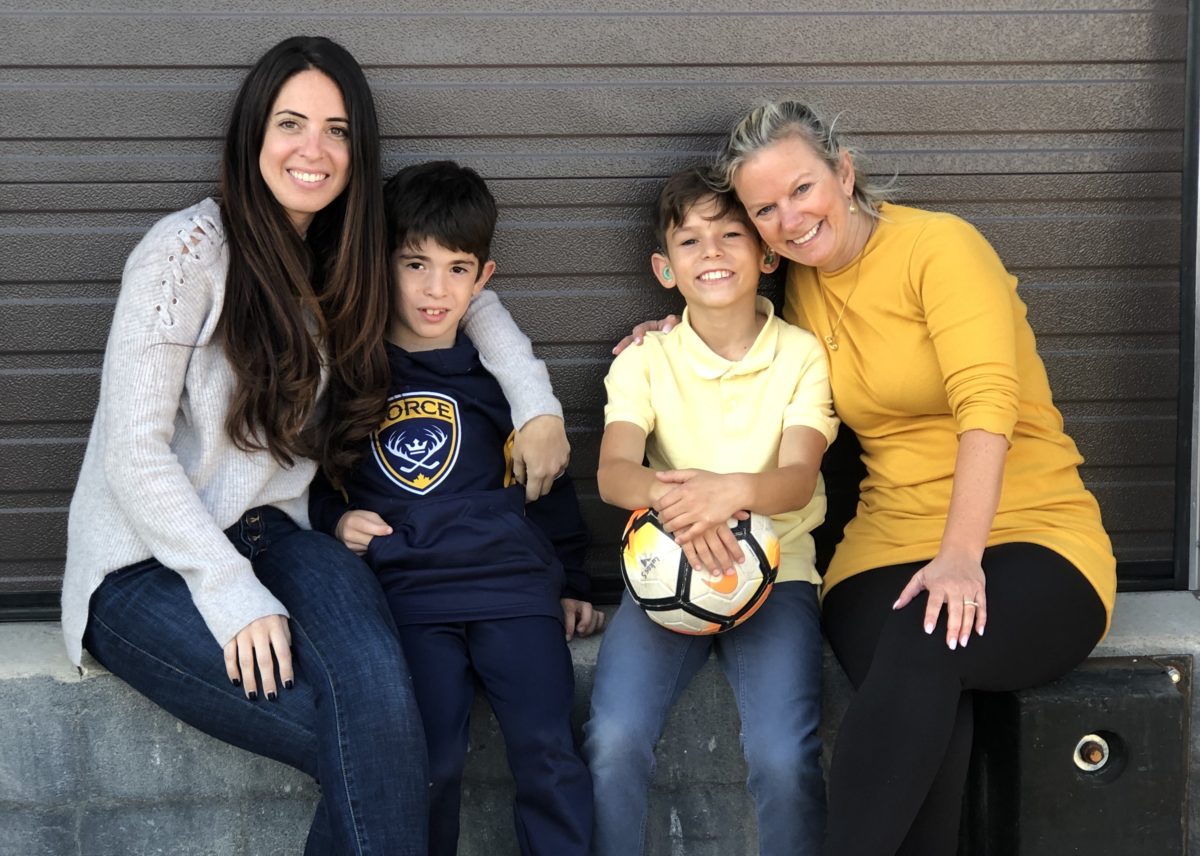
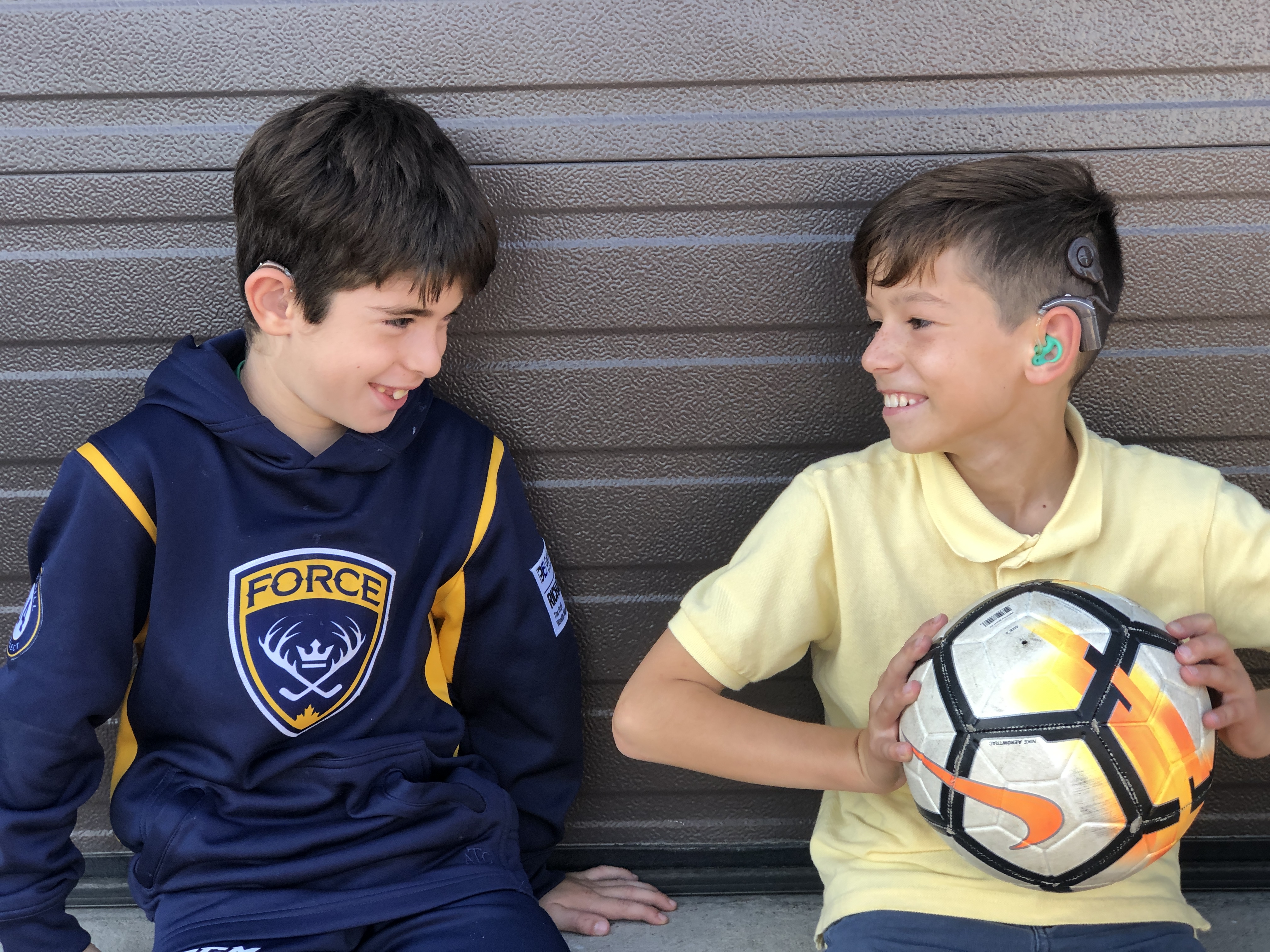
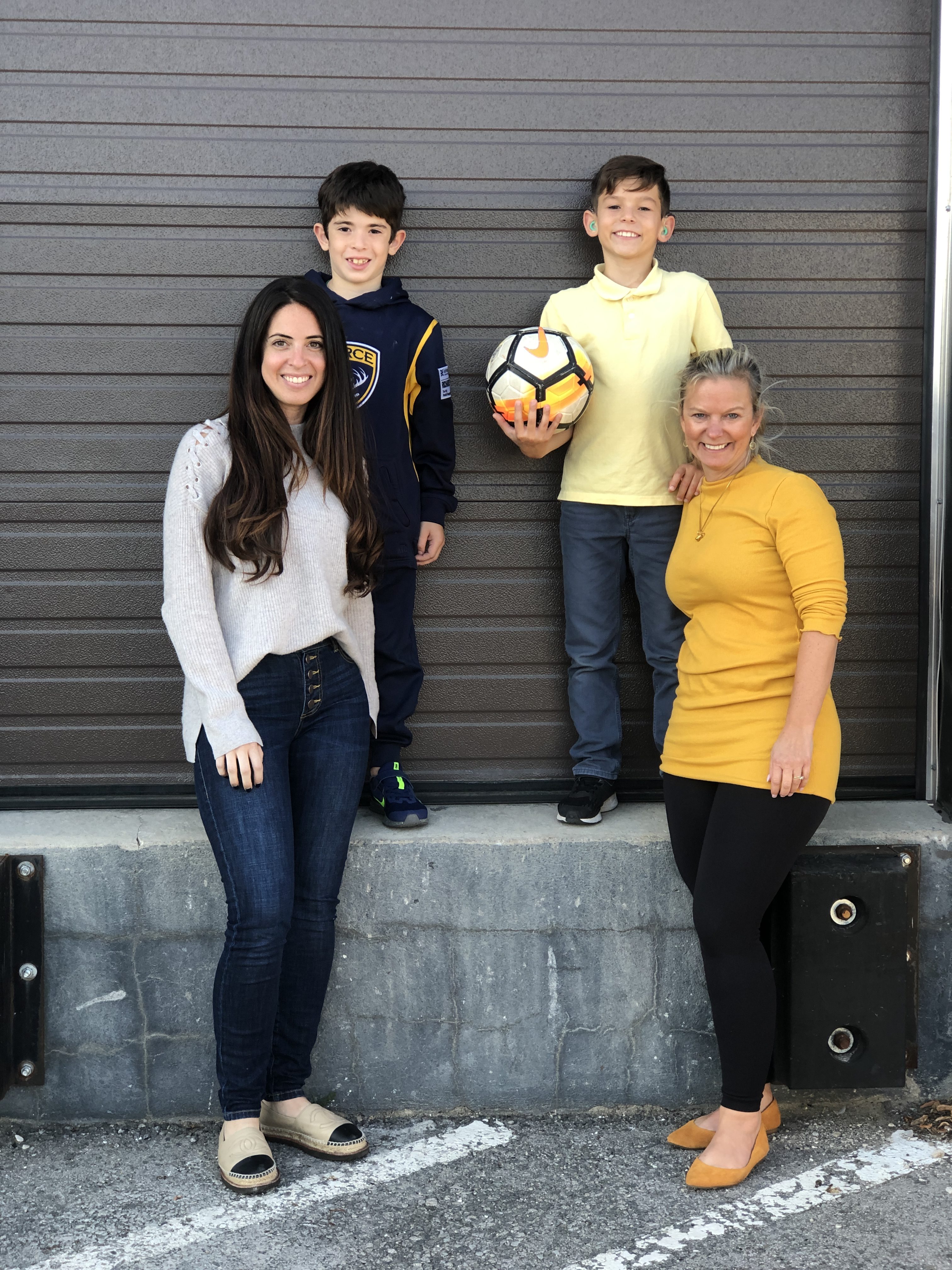
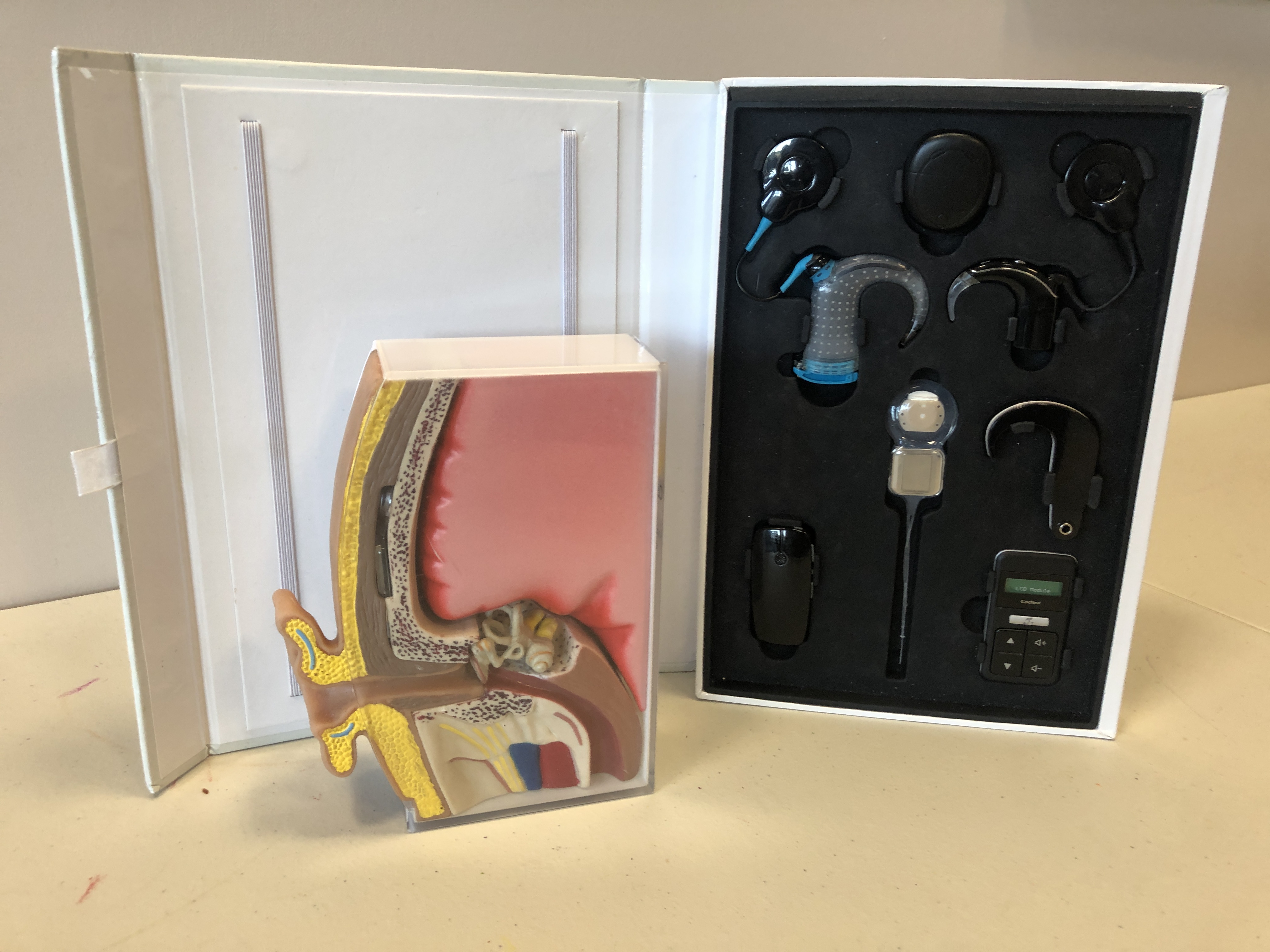
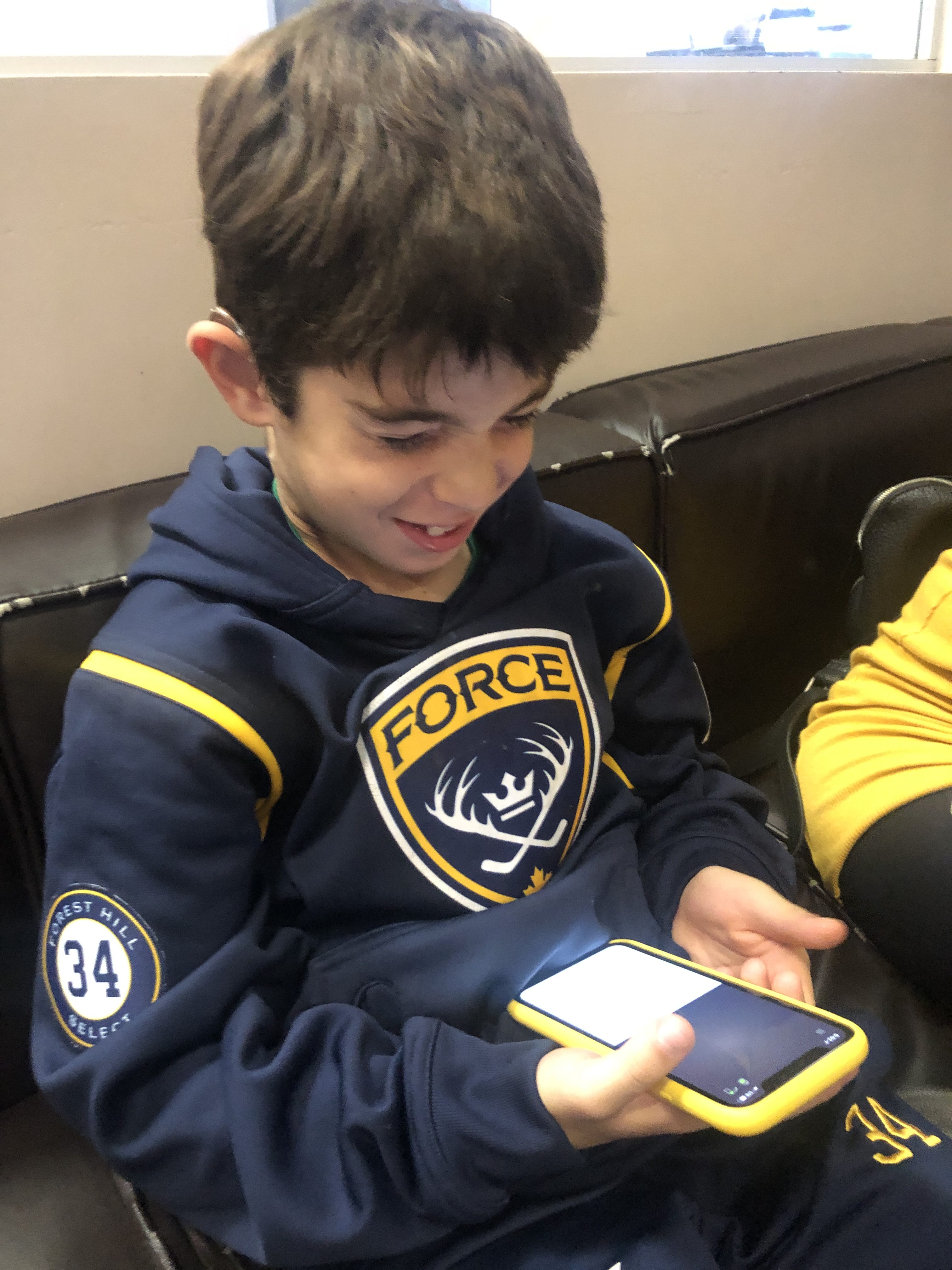
Comments
Thanks so much. This was well written and I will share with my community and colleagues